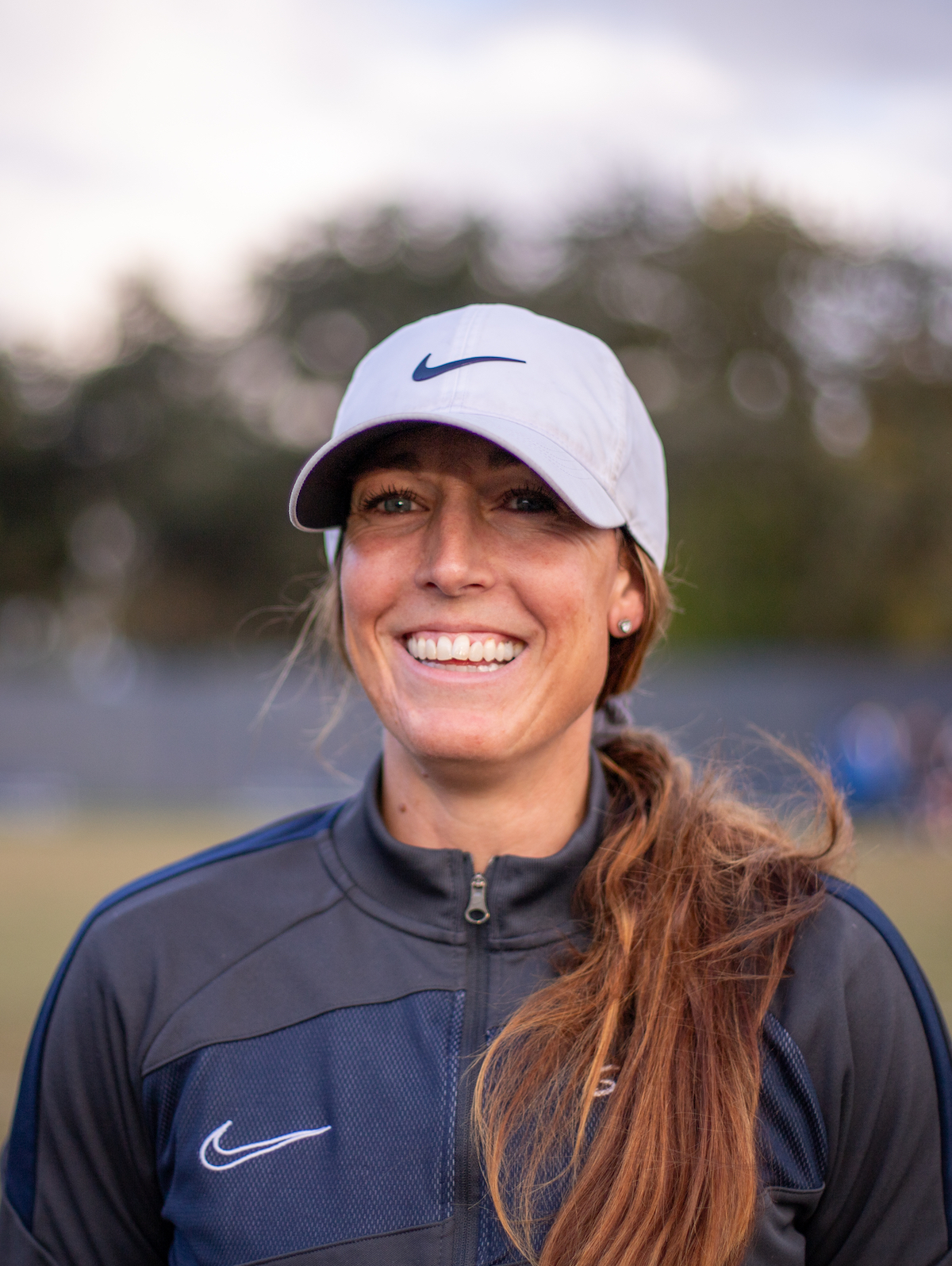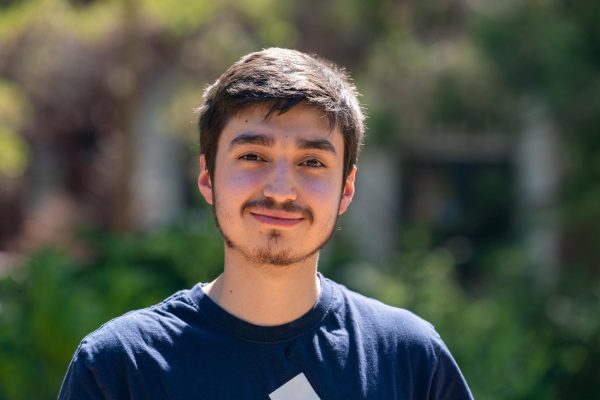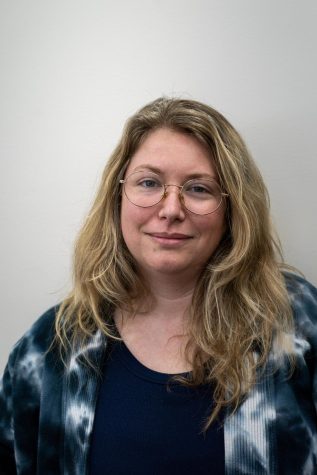In her fourth season as head coach of the Bear Cubs, Crystal Chaidez said she is using all the lessons she learned from her time playing for Sonoma State University and semi-professionally to “solidify my coaching style.”
Coach Chaidez began coaching soccer at Santa Rosa Junior College as an assistant in 2005 and was also an assistant coach at Sierra College from 2011-2013 and SSU from 2013-2015. She credits the head coaches she served under with helping shape who she is as a coach.
The Oak Leaf interviewed coach Chaidez ahead of the team’s second round playoff matchup with Las Positas and asked her about team building, to describe some highlights from this season and to tell us what it’s like living in a soccer-centric household.
[Note: The following interview has been edited for length and clarity.]
OL: You were a soccer player for many years. How has your playing career shaped you as a coach?
CC: It’s hard to kind of change from a player mentality to a coach mentality. That was the biggest thing for me to learn.
In my mid 20s I moved to Sacramento for four-and-a-half years, and I kind of stopped playing soccer to focus on my coaching career. That was helpful, because I got to focus on who I was as a coach and who I wanted to become as a coach, versus who I was as a player.
I think it really helps me to still be playing. The game has evolved so much … the different shapes and the different formations, philosophies, styles and new rules. Being true to who I am as a coach, but also open to new ideas and evolving with the game of soccer, [while] still playing and watching it at this level is very helpful.
OL: What are some keys to success in building team chemistry and a bond between players in a short period of time, since junior college students are often on the team for two years or less?
CC: That’s the hardest part, especially as a coach — you get attached to [players] and you want to see them grow and develop. Then you gotta let them fly the nest, and you’re so excited, but you also want more time with them.
We usually take an overnight trip somewhere. This year, we did an overnight camping trip in Spring Lake, and I was so blown away at how awesome they are. I was a little nervous to take so many girls camping just for a night. By the time I got there, they had their tents set up; it was really cool to see.
You want to focus on the soccer field, the soccer stuff, but [team building] is really such an important piece of developing a program and getting ready for a season. Sometimes doing team building is more important than going on the soccer field.
OL: What were some of this season’s highlights?
CC: It’s been such a blur, but also really exciting. The biggest thing for me is to see the players invest in themselves and each other. We had a very tough schedule this year.
Last year we focused a lot on teaching the game of soccer, just “knowledge, knowledge, knowledge,” and this year we really got into practices, and I got to challenge them. I got to be creative as a coach and get them into drills and training they’ve never experienced before.
I’m really proud of this group, to see them go through ups and downs and trust me as their coach and [trust] the whole process and trust their team. I think that’s where we’ve had success the past few weeks. We’ve worked really hard and they’re not going to stop. Nothing fazes them. I’m the one secretly over here being super nervous, and they’re like, “We got it.”
OL: I’m interested in your evolution as a coach. What are some valuable lessons you learned or things you are doing differently compared to your first season here at SRJC?
CC: Don’t talk to any of my alumni because they’ll say I’m soft now. When I first came here as a head coach, 10 years ago, it was a chance to put together everything I learned from my coaching at different levels. I really wanted to have a program where players can come in, they can be respected … I want to make this a safe place for any female to take a chance on themselves and us.
They are not going to just learn soccer; they’re going to learn life lessons and teach themselves that they can be amazing, powerful young women.
I think the biggest lesson I’ve learned is adaptation. I’ve had to adapt as a coach every single year — especially from the pandemic — different personalities, different levels coming in every year. What I committed to is just making sure that whatever group I have coming in, I need to adapt and coach to what I have in front of me.
OL: Your team had a remarkable streak of clean sheets in six consecutive games, a total of 540 minutes when no opponent scored. How did your team find its stride?
CC: I think it’s a little bit of everything. I sat down with my coaching staff; I value their opinion, and I trust them. And then I had to do some self-evaluation as well and really look at the team. You get to a point in the season where [something] was working for a while, but [now] clearly it’s not. Are we going to continue on and see what happens, or are we going to make small adjustments?
You could be the best coach and [make] the best decision, or it could be a complete failure.
We went to a stopper sweeper [formation], which helped us immensely. Instead of playing a flat back where we have two center backs side by side, we adjusted to one center back. Offensively it gives us better angles to play through the back, and just that extra support. It’s such an old-school style.
All of a sudden we were like, “OK, this is working.” We’ve obviously reaped some rewards from both sides, from me being open minded and making small changes to them being open minded and really going, “All right, if this is what we need to do to be the best team and best program on the field that day, we’re going to do it.”
OL: Soccer is a very big thing in your family. Like you, your husband played soccer at Sonoma State University, and now you both have careers teaching the sport to others. Do you plan to pass your love of soccer down to your kids?
CC: I have two sons. One is 11 and the other is 7. The 11-year-old plays a lot of soccer. When he was 3 ½, he would sit on a ball for the entire practice at Sonoma State, just watching. That’s just who he is; we never pushed it, and that’s been his internal drive.
My 7-year-old son loves to play on his own. I want my children to be happy and find — whether that is some other sport, music or anything — that they feel the passion and the love for something just as much as I do soccer.






